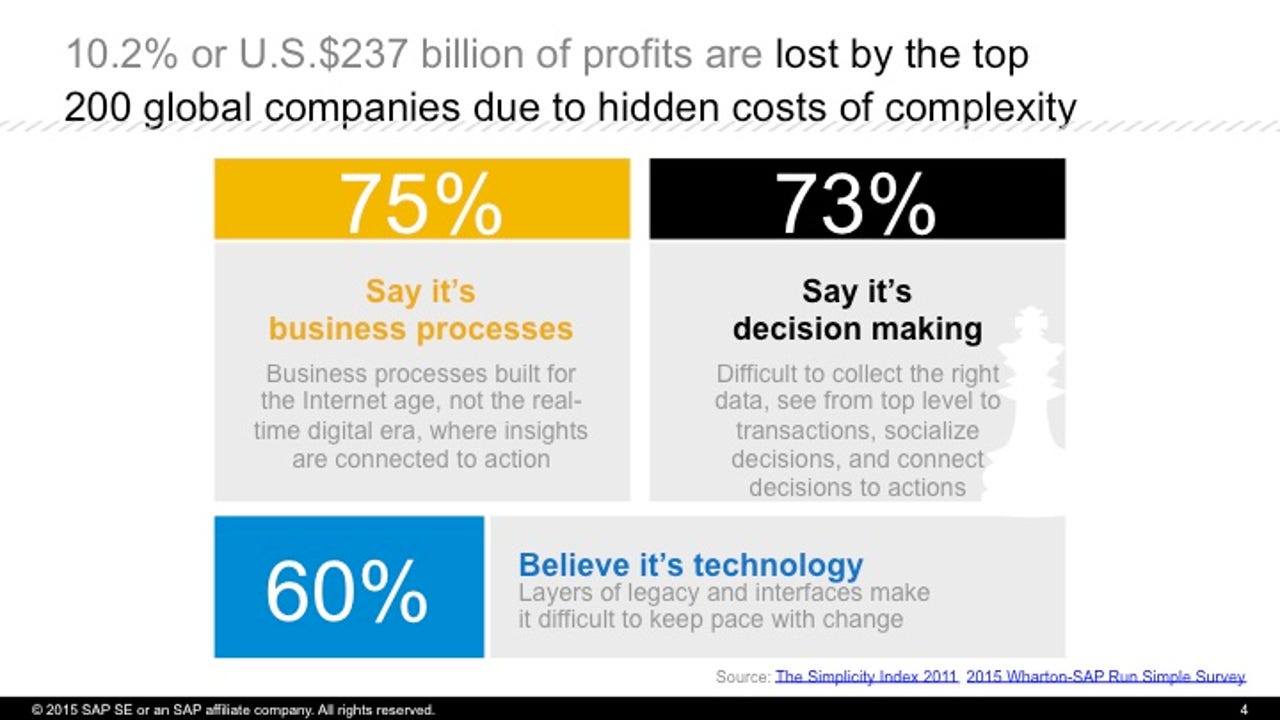The digital trends for business
One question I'm asked in every client interaction is: What are the key digital trends that companies are embracing?
The key trends I see are reflected in the business models of the future, and they often enable those models. The market today is driven by customer-centricity, operational excellence, global networks of commerce, and rapid technological innovation. And underneath, you have the four macro drivers of change: Customers, Social, Innovation, and Technology.
Most of our customers tell us there are three key things they need to care about: Rising customer expectations, pressure on resources, and a dramatically changing workforce.
But what are the key markers for business models of the future? Looking at numerous interactions with key market makers and leaders in Digital Transformation, here are my favourites:
- Customer-centricity: Digital technology has changed the game. But consumers changed the rules. They demand simple, seamless, personalized experiences across any channel, anytime, anywhere, and on any device.
- Operationally simple: The world is getting smarter in the digital economy. But complexity is killing innovation exerting negative pressure on the collective bottom line. So we need to find ways to simplify, everywhere.

- Globally networked: Trillions of dollars of commerce are moving into silos and millions of companies are attempting to innovate on their own. This is a huge lost opportunity to improve the lives of billions of end users.
- Technological innovation (especially Internet of Things and big data-enabled business): The most dramatic change in the digital economy will be driven by hyper connectivity and big data science. This will transform nearly every business model, bar none.
Looking at the trends, it is important to analyse how companies are meeting these targets of digital transformation with the support of technology. First of all, technology is not an end in itself -- it always should be an enabler for innovation. Trends like big data, connectivity, and cloud have been around for a while. They are standard or are even commoditized.
Now you see combined technologies coming to life with real game-changer potential: 3D printing influences manufacturing; Internet of Things influences classical businesses and pushes them to embrace a service orientation; augmented reality and geospatial capabilities influence buying behaviour. Companies require an in-memory, real time platform to leverage these trends.
The companies that will survive embrace these technologies -- and take digital transformation seriously -- or they risk disruption. Companies need to simplify and make their core more flexible to adapt quickly to changing needs.
Our research has shown that the digital economy is now a reality and it's already transforming business processes, business decisions, and business outcomes. Over three-quarters of business leaders believe that achieving digital transformation will become critical to their organizations within two years. And, almost all employees believe digital transformation is right for their organizations.
Beyond a digital strategy, a digitized core plays the most significant role
Digitizing the core is key to transforming your business and preparing it for the future. Every business process depends on the core and touches it sooner or later. Now the big question is, how to make your business faster and simpler, and how to further automate your processes. You need to integrate seamlessly across all value chain processes: client interaction, digital R&D, production, administration, and more ...
This means you must re-think how a business core looks in the 21st century. This is where businesses need to focus:
- The entire value chain is digitized, including the digital core, which serves as the foundation for business innovation and optimization.
- The digital enterprise interconnects all aspects of the value chain to drive and anticipate business outcomes in real time.
- Enterprises across industries can lead the digital transformation by completely reimagining business models, business processes, and work.
Emphasizing these fundamentals helps customers reimagine their businesses in the digital economy.
Now how to get there fast?
Well, here come the clouds -- everyone is talking about them but very few understand why they are important to the goals we have just discussed. Here is my take: Cloud is commodity. Not everything is going cloud, but we are in a "why not cloud?" state already. The problem is, many have ended up in a mushrooming environment of disparate cloud solutions. This is a huge problem. Companies need to rethink and come back to an interconnected platform approach. A cloud not thought through wisely just creates more silos, faster.
But let's be clear: The cloud model is the ideal and catalytic enabler of the digital transformation. You can start simple, then you can grow from there. We see a growing appetite to run more and more traditional business processes in the cloud (public or private, but mostly hybrid), which is why we offer 'everything in the cloud' as an option. But customers want choices, not be forced in one direction only.
The next wave of innovation to embrace when building strategic business models
Companies will re-map their business along efficiency, effectiveness, and agility. For me, these are building the framework of the digital transformation. We will actually measure the transformation gains along these parameters.
So here is my recommendation: Choose the business process wisely, then transform or even disrupt it quickly. And remember: Today, two clever kids can go where entire corporations and their infrastructures were just three years ago. It is time to make the move and embrace the Digital Economy, or someone else will beat you to it.
Looking forward to your feedback, and let's stay connected @SDenecken